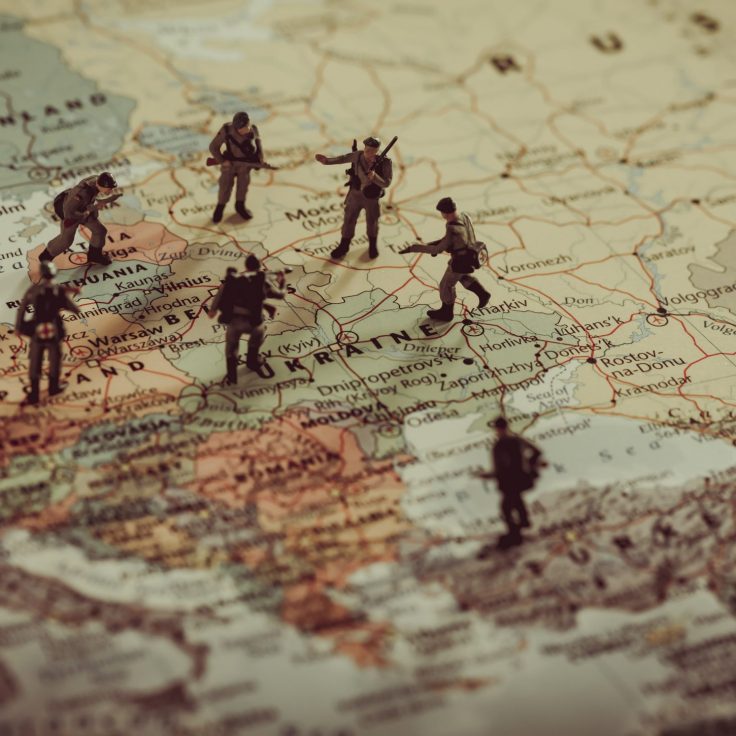
Alumnae follow their passion in earth-bound space exploration
Space exploration conjures mental images of astronauts or perhaps scientists peering at the far reaches of the visible universe through telescopes, but two University of Florida alumnae who studied political science have made contributions of their own.
Connecting community to the mission of NASA

Experiences outside the classroom jibed with lessons learned from professors in the Department of Political Science at the University of Florida, putting Sol Ortega (Political Science and Spanish ’17) on a path that led her to the National Aeronautics and Space Administration where she enriches historically disadvantaged communities through information and connections.
“I started at UF in the summer of 2013. Almost immediately, I got a federal work study job at the Institute of Hispanic and Latino Cultures,” Ortega said from her office in Washington, D.C.
By her second year, Ortega obtained a fellowship through the Bob Graham Center for Public Service as an aide to state Sen. Dwight Bullard. She soon realized a life in public service was her path.
As a fourth-year student, Ortega interned in Washington, D.C., with the Congressional Hispanic Leadership Institute and the Congressional Hispanic Caucus Institute, created to advance the Hispanic community’s economic progress and form a pipeline of Latino talent, respectively. She also interned with U.S. Rep. Darren Soto, U.S. Rep. Frederica Wilson, and later worked for U.S. Sen. Chuck Schumer.
“That’s where I started learning how to work with community organizations to influence policy,” Ortega said. “After 5 years on the Hill, I left to work for Building Back Together. I started doing Latino-specific engagement. And then I got an opportunity to work at the White House in October 2022.” President Joe Biden appointed Ortega to her current position as a public engagement advisor at NASA in July.
“Our work here is to make sure that there’s a connection between underserved communities and the work that NASA is doing,” Ortega said.
That could involve helping people find internships and other opportunities at NASA, or ensuring data gathered from satellites is available to researchers seeking to mitigate the impacts of climate change on vulnerable communities.
Ortega said her undergraduate work at UF taught her to think critically about issues facing society in general, and under-represented communities in particular.
“It helped me understand the importance of diversity of thought. The University of Florida taught me the value of productive conversations with people of different beliefs,” she said.
It also connected her with other Gator alumni in Washington. “That UF network is really strong in D.C. Folks really want to help each other out,” Ortega said.
Shaping strategy for space policy in the military

The academic path to expertise in space policy didn’t exist when Wendy Whitman Cobb arrived at the University of Florida as a graduate student in political science in 2008. So, she charted it.
Today, Whitman Cobb (Ph.D. Political Science ’12) is professor of strategy and security studies at the U.S. Air Force School of Advanced Air and Space Studies (SAASS). She leads gifted officers who will go on to shape the nation’s military strategy for space.
She also has written four books, including “Privatizing Space: How Commerce Can Reduce Conflict in Space” and “Space Policy for the Twenty-First Century,” the first comprehensive look at major space policies in the United States.
She credits supportive UF faculty in the Department of Political Science for giving her a strong foundation in traditional political science and the freedom to explore what was then an emerging field of space policy concerns.
“When I started at UF in 2008, space wasn’t as big a deal as it is now, especially in policy circles. SpaceX had barely done anything. Nobody really thought commercial companies were going to succeed. Space Force wasn’t a thing. But I really wanted to focus on space policy. The challenge was that nobody really had a degree program specializing in space policy,” Whitman Cobb said.
“The reason I went to UF instead of other schools was the focus on qualitative methodology that they had there. I’m grateful because I was broadly trained across a lot of subfields. I don’t think I would have the career that I have today without that,” she said.
After six years as a tenured faculty member at Cameron University in Oklahoma, Whitman Cobb accepted a position with SAASS. “I got here just before the Space Force was established. So, I’ve sort of seen the evolution of military thinking on space,” she said.
Along with teaching, Whitman Cobb is exploring new frontiers in space over such questions as how reliant the U.S. military should become on technologies and equipment developed by private companies, such as Starlink and other mega constellations of satellites.
“What if one of these commercial actors breaks bad and decides to sell to our adversaries? Do corporate interests necessarily serve U.S. interests? We have very few rules about what we do in space,” Whitman Cobb said.
Whitman Cobb realizes the tools she learned at UF have been essential as she builds an intellectual framework for considering these important challenges.


